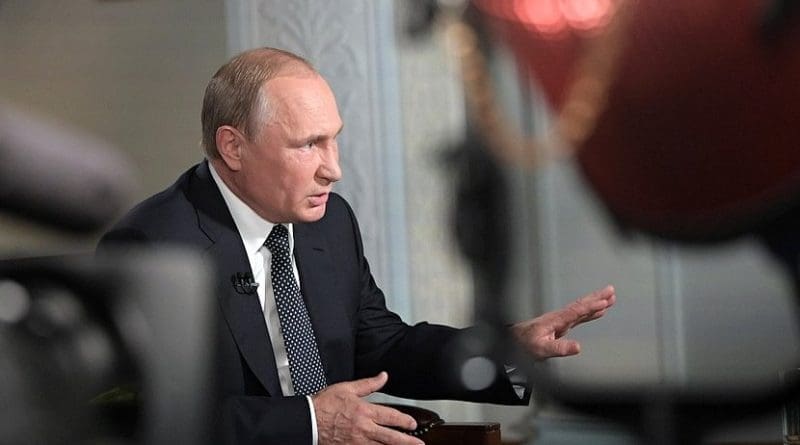Putin, United Russia And The Message – OpEd
On Dec. 8, Russian President Vladimir Putin took part in the plenary meeting of the 18th United Russia party congress, reiterated the key challenges, problems and accomplishments for the nation. The congress delegates identified the challenges and priorities in the party’s work for the coming year.
Putin acknowledged the party’s support during his presidential election campaign, saying it was “a momentous thing shaping the top institution of power” in Russia. This concerns the president, the government, the region – any level, down to the local or municipal one.
Putin further referred to an action plan that was presented in a condensed form in the Executive Order in May 2018 and that set out in national projects drafted by the Government (the majority in the Government are United Russia members) and was supported by legislators (United Russia holds the majority in the State Duma). He pointed to the fact that there would not be any success without United Russia’s backing at the regional and municipal level.
“The United Russia party plays a special role. For a number of years the party has been showing its competence, its ability to make responsible decisions, explain these decisions to the people,” Putin told the party delegates during his address, while acknowledging frankly that there have been pitfalls and problems in the political leadership.
Leadership means making responsible decisions the country needs. This leadership is an enormous resource to achieve dynamic and substantive change that can ensure a radical improvement in the quality of life and greater well-being of the population.
Putin reminded the party meeting that the entire world going through a dramatic situation. In his words: “the world is undergoing a transformation, a very powerful and dynamically evolving transformation, and if we do not get our bearings, if we do not understand what we need to do and how, we may fall behind for good.”
He suggested that United Russia with its tremendous legislative, organisational and human resource potential must fully utilise it and consolidate all of society, in solving development issues, in implementing the nationwide agenda.
Putin told the party delegates never allow any sort of rudeness, arrogance, insolence towards people at any level – at the top level and the lowest, municipal level. This is important because it does the country a disservice, it is unfair to the people and it denigrates the party to the lowest of the low. The public demands fairness, honesty and openness.
What is “society” after all? It is the people. Thus, one key factor here is that people’s opinions and attitudes must necessarily be taken into account. There must be commitment to implementing people’s initiatives, and their initiatives must be used in attaining common goals, especially at the municipal level, according to the Russian leader.
The most crucial thing for a political party is a steady standing of its representatives and that United Russia does not have to fear change but rather work strategically towards making a change for the better.
Putin further asked the delegates to work relentlessly for a free democratic country, development of nationwide tasks, realisation of new ideas and approaches. Discussions and competition, including within the party itself are very efficient tools for solving problems in the interests of the nation. United Russia has to do everything needed to instil both inside the party in particular and in society in general this political culture, an atmosphere of dialogue, trust and cooperation with all political forces of Russia.

